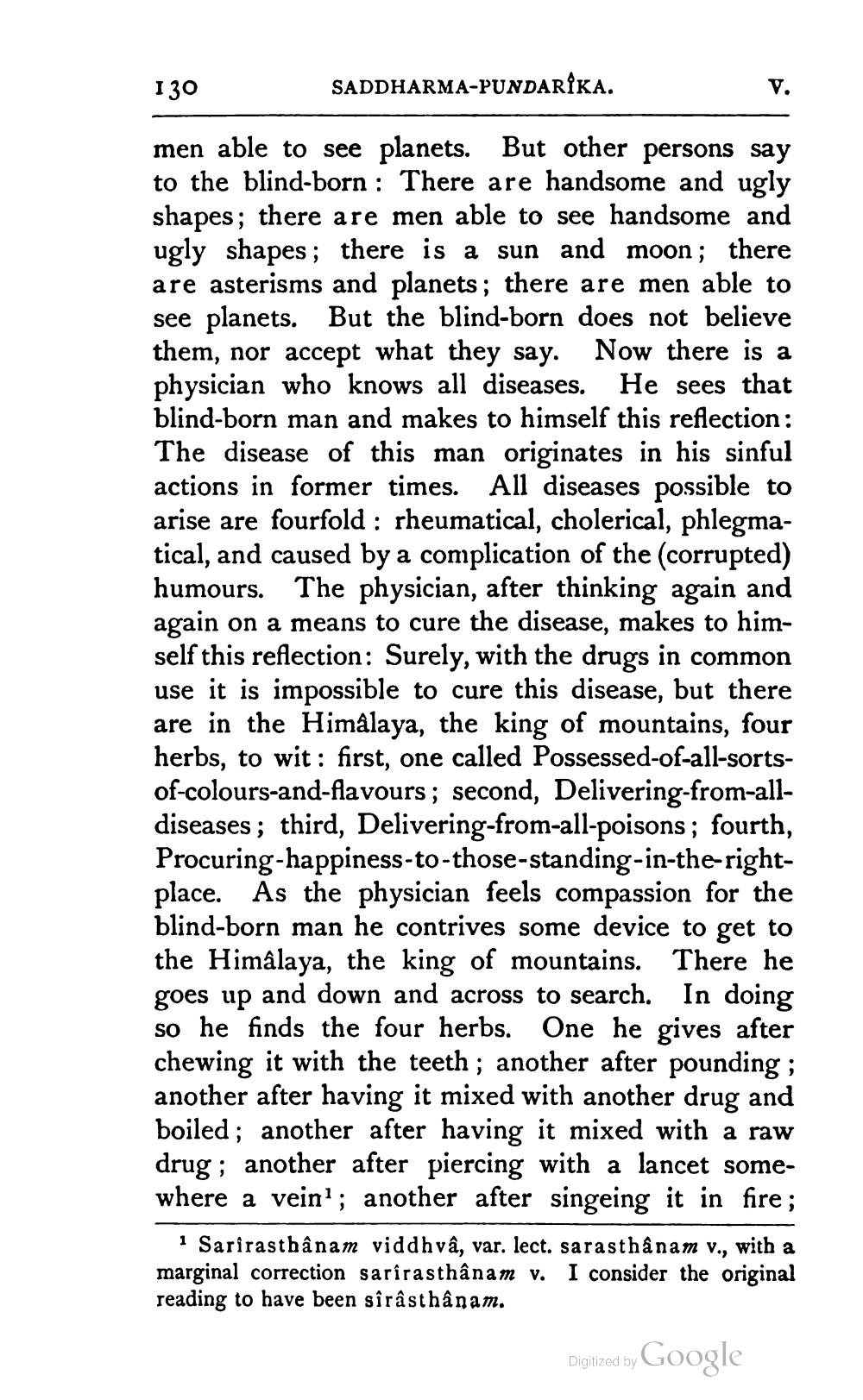________________
130
SADDHARMA-PUNDARÍKA.
men able to see planets. But other persons say to the blind-born: There are handsome and ugly shapes; there are men able to see handsome and ugly shapes; there is a sun and moon; there are asterisms and planets; there are men able to see planets. But the blind-born does not believe them, nor accept what they say. Now there is a physician who knows all diseases. He sees that blind-born man and makes to himself this reflection: The disease of this man originates in his sinful actions in former times. All diseases possible to arise are fourfold : rheumatical, cholerical, phlegmatical, and caused by a complication of the (corrupted) humours. The physician, after thinking again and again on a means to cure the disease, makes to himself this reflection: Surely, with the drugs in common use it is impossible to cure this disease, but there are in the Himalaya, the king of mountains, four herbs, to wit: first, one called Possessed-of-all-sortsof-colours-and-flavours; second, Delivering-from-alldiseases; third, Delivering-from-all-poisons; fourth, Procuring-happiness-to-those-standing-in-the-rightplace. As the physician feels compassion for the blind-born man he contrives some device to get to the Himalaya, the king of mountains. There he goes up and down and across to search. In doing so he finds the four herbs. One he gives after chewing it with the teeth ; another after pounding ; another after having it mixed with another drug and boiled; another after having it mixed with a raw drug; another after piercing with a lancet somewhere a vein?; another after singeing it in fire;
i Sarirastbânam viddhvâ, var. lect. sarasthânam v., with a marginal correction sarirasthânam v. I consider the original reading to have been sîrâsthânam.
Digitized by Google




